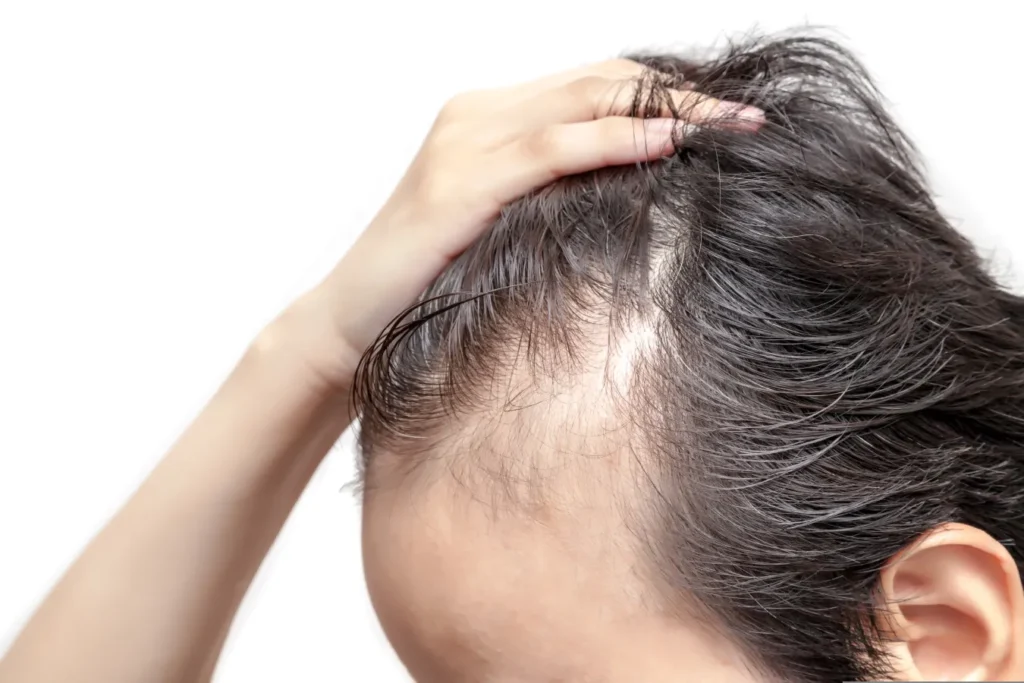Also known as hair loss or baldness, alopecia has different causes; however, diet plays an important role in preventing this condition. It doesn’t only occur in older people – as is often believed – and it is not due to daily hair washing. Alopecia – hair loss – may be more common than we imagine.
Doctor and surgeon Mónika Pérez mentions that it can occur in all people. The process begins with the thinning of the hair until it becomes fine and, finally, it falls off. This causes it to look sparser and, at the same time, some nutrients to be lost.
Perez says that the hair population begins with growth and maturation, and finally, it remains on the scalp. Despite this, it is normal for hair to fall out daily.
According to the president of the Guatemalan Dermatology Association, between 100 and 150 hairs fall out of the 100,000 that we usually have on our heads every day. These hairs reappear in the area from which they fell out. It is something very “cyclical and constant,” says Pérez.
However, there are some people for whom the process is not so simple. The areas where hair falls out may start to become empty and not recover.
There may be many causes: hormonal, when there is an imbalance in testosterone (in men) or estrogen (in women); infections, such as folliculitis decalvans, where the hair follicles become inflamed and end up being destroyed; as well as hereditary, physical, and chemotherapy causes, among others.
One of the most important is related to nutritional effects. Dr. Mónika explains that loss occurs in this area when there is an iron deficiency or an excess of vitamin A since these two nourish the hair follicle – the opening on the surface of the skin where the hair grows.
Strengthening hair, or slowing hair loss, can be achieved with some products that contain vitamin B5, which works as one of the components that stimulate hair health, as well as keratin, which moisturizes it. These are found in substances such as shampoos or lotions, and also in foods.
Nutritional link
Ivonne García, nutritionist and coordinator of the Nutrition internship at Rafael Landívar University, explains that hair loss has a very direct relationship with nutrients since the maintenance and recovery of tissues depend on them.
She says that its deficiencies can be expressed through hair loss, easy shedding, and dryness.
Although she agrees with Mónika Pérez that daily hair loss is natural, there may be affected areas where hair does not grow. To avoid this, García indicates that proteins are a great ally.
The nutritionist emphasizes high biological value protein since it promotes tissue regeneration more easily. It is found in animal products such as red meat, fish, eggs, milk, or yogurt.
García adds that, in the case of people with a vegan or vegetarian diet, this would be a great challenge, since proteins with low biological value – which are usually vegetable – do not stimulate tissue regeneration properties as quickly.
In light of this, it is recommended to mix cereals with legumes or consume soy. Similarly, vitamin substitutes recommended by a nutritionist can be consumed.
Micronutrients also play an important role in strengthening hair. Vitamins such as C and B are precursors to proteins in the body. These can be found in citrus fruits, as well as nuts, legumes, and some seafood.
In addition to these, the nutritionist suggests eating foods with zinc and iron. Some foods that contain them are brown rice, pumpkin seeds, spinach, watercress, or chard.
García clarifies that, in many cases, hair loss and its relationship with nutritional aspects usually occur in children, since in adults it is generally due to hormonal causes. Even so, this does not rule out the possibility that an adult may suffer from it.
To do this, the specialist recommends following a healthy diet, as well as confirming that the hair loss condition is attributable to a nutritional deficiency.
In the face of the fall
Mónika Pérez says that if people suspect excessive hair loss, they can undergo hormonal tests, biopsies, or dermatoscopies to arrive at a diagnosis and proceed. In such a situation, dermatology specialists should indicate which treatment to apply, since the causes vary.
To treat it, “topical” products such as lotions or shampoos are usually used. In other cases, hair implants are used, which cut the follicles and graft areas for hair regrowth. Systemic drugs such as finasteride, and dutasteride, and topical drugs such as minoxidil and steroids in the form of lotions and foams are also used.
Pérez recommends taking into account the family’s hereditary history, as well as not falling into myths such as daily hair washing. According to the specialist, hair should be washed daily, since one of the most common causes of hair loss is excess oil on the scalp. Even so, it is pertinent to visit a doctor specialized in the subject to resolve any queries.

